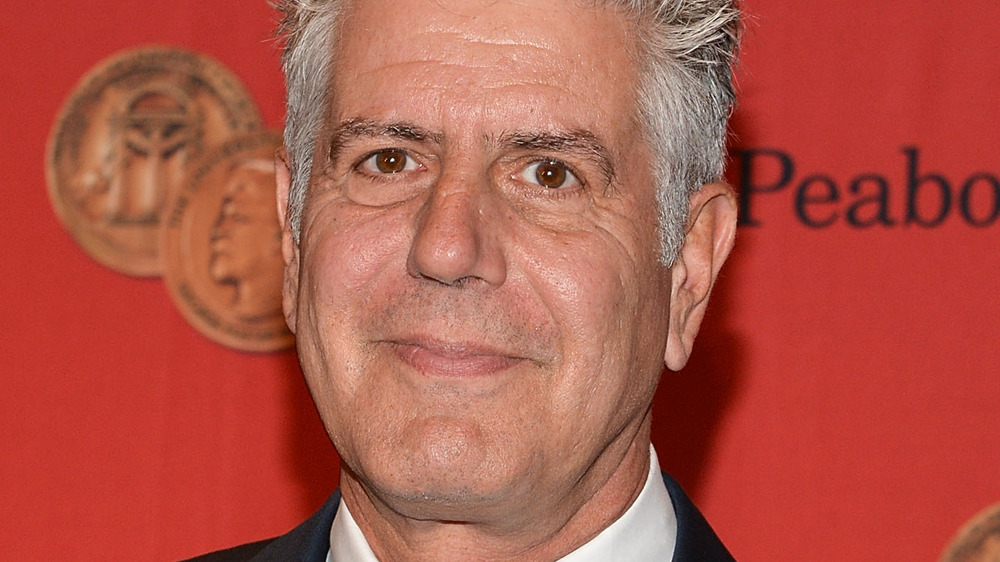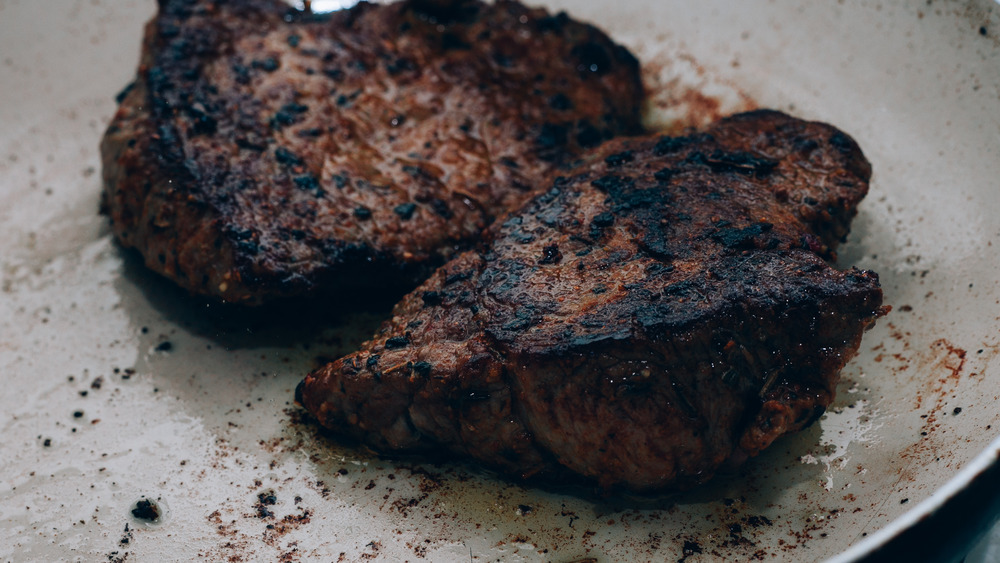The Gross Reason To Never Order Meat Well Done, According To Anthony Bourdain
The late Anthony Bourdain was never one to hold back. Whether you were a fan or didn't care for his blunt manner, you could always count on him for the truth. So believe him when he tells you what to never order in a restaurant.
The chef, author, and TV host left behind a legacy of great food, gastronomic adventure, and good journalism. In his 2000 tell-all book Kitchen Confidential, Bourdain spilled the tea on his own glamorous life as well as his bad choices. In between, he took us behind-the-scenes to explain things chefs don't necessarily want us to know about (via USA Today). Amongst stories of his culinary rock 'n roll lifestyle, Bourdain inserted some important and very useful takeaways, such as: Never order fish on a Monday because you can bet it's been sitting around all weekend.
The star of No Reservations and Parts Unkown also explained the nuts and bolts and financial realities of the restaurant business, and how those realities shape what lands on your plate. For better or worse, Bourdain lifted the veil on the restaurant industry, making us all the wiser.
How to avoid the worst cuts of meat, according to Anthony Bourdain
While traveling the world eating, Anthony Bourdain saw some things. So if a man who tasted cobra heart and fetal duck cautioned against eating something, we should listen. In Kitchen Confidential, Bourdain wrote that "there are some ... things I've seen over the years that remain in mind and have altered my eating habits." One of those bits of wisdom: Never order meats well done. Rarer temperatures are more flavorful, but there's more: a well-done cut of meat can hide a multitude of sins, and ordering it this way helps a restaurant clear out its less desirable inventory.
In an article in the April 1999 issue of The New Yorker, (a prelude to Kitchen Confidential), Bourdain wrote of the hostility "well-done" orders garner in some kitchens: "People who order their meat well-done perform a valuable service for those of us in the business who are cost-conscious: they pay for the privilege of eating our garbage," he wrote, describing a kitchen tradition called "save for well-done."
This means that with the worst steak, described by Bourdain as "tough, riddled with nerve and connective tissue," or a tad past its "best-by" date, chefs can either take a hit and toss it, or save it for "the philistine who orders his food well-done" and is unlikely "to notice the difference between food and flotsam." Bourdain could be harsh, definitely, but we're glad for this bit of advice. We'll be sticking to medium.

